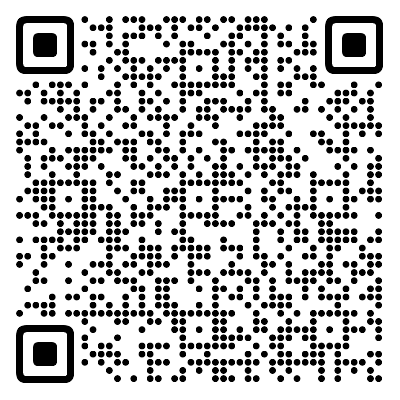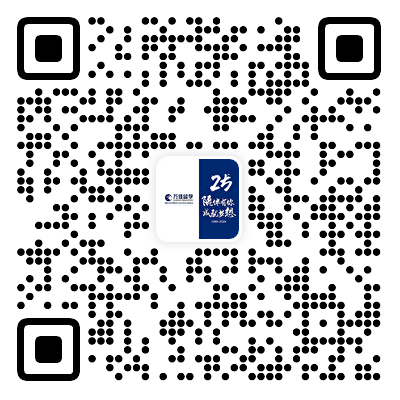There are a set of criteria which are nearly universal among universities for judging admissions documents, including personal statements. These are set by the various professors themselves, and determine whether or not the reader, employed either by the university or the professor, passes the documents on to the professor. They cover several attributes of the documents: format, size, content and language. In order to understand these criteria you must know how such documents are handled once they arrive at the university of application.
On arrival the documents are sorted by department. The admissions office then opens each and checks that all relevant materials are included, before forwarding them to the department concerned. If there are documents missing, the packet is not forwarded. If a return self-addressed envelope is included, they are sealed into it with a printed note showing what is missing. Otherwise, they are put into the trash,unless somebody has time to send a request for the missing documents, which is rare indeed. The packets which are complete are then filed, and the personal statements, resumes, curriculum vitas, and references are forwarded to the department concerned.
On arrival in the department, they are handled in one of two ways. If the department has someone assigned as a reader, the documents go into his or her in-box. If not, they go into the professor’s in-box. His teaching assistant or secretary then handles them. They are passed to whoever is assigned to read them: the TA, the secretary or a reader employed for that purpose. The reader then reads them in order of arrival.
The reader seldom reads the entire document, unless that reader is educated in the discipline of the department, which is not always the case. The educated reader who knows the major will read through the document until he or she has made a decision about its value. At any point, if the reader finds very large flaws or becomes terribly bored, the document is discarded or returned.
If the reader is not educated in the discipline, he or she first looks at the resume or curriculum vitae. If that is sub-standard for any reason, the documents are discarded or returned if an SASE is included. Next the reader looks at the personal statement. She or he reads the first one or two paragraphs carefully and then skims the middle brie fly, and then reads the last one or two paragraphs. If the document at any point does not pass the judging criteria set up by the professor, the reader stops and either discards or returns the document. Only documents that meet all or most of the following criteria will be passed on to the professor for reading:
Clarity: the applicant’s objective must be clearly stated. This should be in the first or last paragraph or both. Does the applicant show a good command of the language? Since research requires that records be kept and reported, and papers published, written communications skills are required. Now, professor’s know that many domestic and most foreign applicants have their work professionally edited. In fact, a poorly written paper is seen as belonging to someone who doesn’t care enough to pay an editor to make his documents the best they can be. Yes the documents must be written personally by the applicant, but there is no rule against having them edited.
Is the format and length consistent with the published expectations of the department? If it is too long, badly typed, or otherwise difficult to read it will be instantly discarded. Do the aims of the PS match the experience shown on the resume or CV? Do the aims of the applicant match the current needs or interests of the department? Does the applicant’s experience and education show enough aptitude for the research or program proposed? Does the content show that this person would be a possible asset to the program? This one is the one attribute that varies more than any other, but there are certain things that most professor’s require:
1. Is the applicant a well rounded individual? This is usually shown by including other activities outside of academics and job information.
2. Does the applicant show a clear willingness to learn? This one is critical to the programs. Professor’s do not need any “problem children” with deficient or inflated egos. If the tone of the PS shows that the applicant thinks he or she is a highly superior human being and the smartest one to come along it will be discarded. Professors want people who are smart, but open minded. They do not, under any circumstances, want someone who will tell them what to do. That is why the information in the PS should never include the judgment of the applicant’s experience or what it shows about the applicant. Some examples of this: I was chosen team captain by my peers three years in a row, which shows how well I get along with people. Because of my friendly spirit I was always the one chosen as class president. That I managed to finish the exam in spite of being very ill shows my determination. The professor is quite able to make very astute judgments about an applicant’s character or personal faults and strong points by interpreting the information about his or her experiences.
3. Does the applicant show the ability to work as a member of a team? The old adage “Show don’t tell” applies here in the most serious way. Applicant’s who show that they have a too high opinion of themselves are immediately disqualified. Confidence is good, but conceit is deadly. Therefore, it is always helpful to include some mention of how the applicant benefited from others, and how others contributed to projects etc. Modesty and the willingness to share credit are considered as very valuable traits. One’s experience and actions will show one’s abilities well enough. They don’t need to be listed.
4. Does the applicant appear honest? Plagiarism of any sort will instantly disqualify the applicant, and perhaps get him “black-listed” among the leaders in the discipline to which he applied. I once knew about an applicant who sent a PS in that plagiarized the professor who headed the program to which he applied. His education at any major university ended at that moment.
5. Does the applicant show a clear progression of learning acquisition? This means that there must be some evidence that the applicant progressed from beginner to current status within the narrative of the PS. It doesn’t have be listed chronologically, but it must be there, and be clearly discernable. Flashback and other devices to maintain interest are fine, as long as the progression is clear.
6. Does the applicant show evidence of ability for research, practical study as in laboratory experiments and application as in actual work or internship. Some evidence of these must be shown
7. Does the applicant appear ready for the demands of this program? Is he or she focused?
8. Does the applicant appear to know what he or she is talking about? This can only really be judged by the professor or someone educated in the discipline, but if the PS is incoherent, this criteria is not met.
Once the PS passes the above criteria it is passed on to the professor. The professor then reads at least part of the document, and sorts them into NO and MAYBE. The criteria used by professors include: Is there something that makes this applicant different from others? This is the finest tooth of the filtering comb If the applicant’s PS looks and sounds just like every other one, it doesn’t pass this criteria. There must be something that sets this person apart from the crowd, and it isn’t academic scores. An engaging beginning, a statement that shows modesty or a bit of humor will get the PS put in the MAYBE pile. Does the experience look adequate? If the professor cannot readily see the papers published and the projects done it may get discarded. This is where summaries of experience are better than detailed step by step descriptions. A few details about each important project or experiment are quite enough. They need not be complete. For the most part, the professors have already done all the experiments listed and the projects also,so the step by step description gets in the way. Would the applicant be an asset to the department or program? This is very subjective, and it is the most critical. The professor must believe he or she will like and respect the applicant. This is where showing respect for the professor is paramount. Do not insult his or her intelligence by including anything he or she already knows. Do not insult them by incredible statements. Professors are looking for hard working, intelligent individuals who get along well with others, share the glory of accomplishments with others and can learn from their mistakes. The last can only be shown by including a mistake or two. They are not looking for perfect machines: these are called computer
s. Does the applicant show the ability, the intelligence and the drive to complete the program, and does she or he show the good sense to have other interests in order to avoid burn-out?
A last piece of advice: since the number of words in a personal statement or a reference or CV is limited, don’t waste words on things the professor already knows, or on things that can easily be inferred. Remember that most of these professors are either native English speakers, or equivalent to one.
In critiquing a document written in very high level language you must remember that such documents cannot be translated line by line, as much of the content is cultural, and the high level language requires interpretation on a paragraph by paragraph basis in order to convey the full meaning. That is why interpreters are so highly paid, and good writers are in high demand.
>>我感興趣,馬上在線咨詢
精彩活動(dòng) 海外院校 升學(xué)導(dǎo)師 成功案例 背景提升 國(guó)際游學(xué) 海外服務(wù)
留學(xué)國(guó)家: 美國(guó) 加拿大 英國(guó) 澳大利亞 新西蘭 亞洲國(guó)家 歐洲國(guó)家
院校推薦: 美國(guó)大學(xué)院校 英國(guó)大學(xué)院校 澳洲大學(xué)院校 加拿大大學(xué)院校 新西蘭大學(xué)院校

